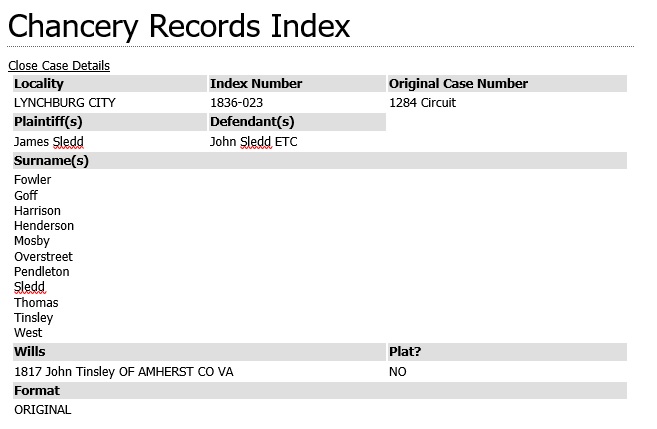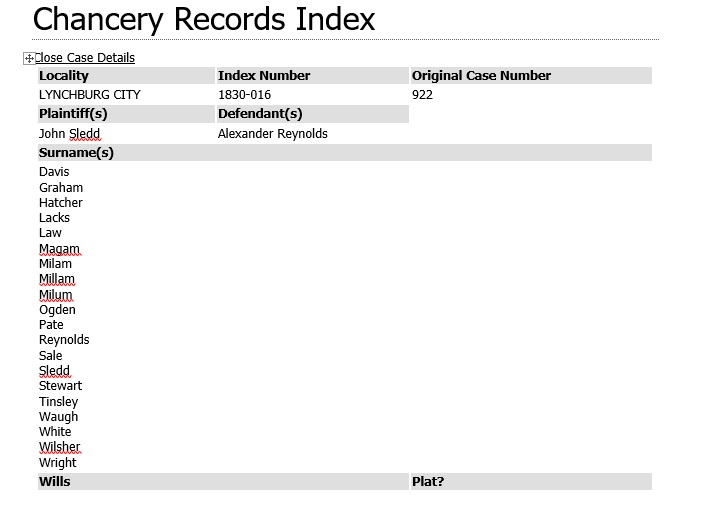I’m making a short trip to the Library of Virginia. Because my time there is short, I’m focusing on materials that are only at the library and have the highest chance of telling me something “I don’t already know.”
That may not be the best way to perform an exhaustive search on someone, but sometimes limitations force us to make genealogical choices. The “Chancery Records Index” indicated that there were two indexed cases that were not digitized and are available at the library. The index entry for both cases was pasted into a Word document so that I could add them to the list of materials I wanted to see and know what names were in those records. That printed copy will also be the place where I take any notes regarding the case as I’m making copies of it at the library.

The “Surname(s)” listed for the case are not an every name index. Based upon my use of the cases that have been digitized and are available online, the index entries appear to be the names of the parties involved and individuals who provided depositions or other sorts of testimony. The first case from 1836 appears to have been over the 1817 will of John Tinsley. On the surface, I’m not certain why the James and John Sledd were the parties in a lawsuit over Tinsley’s estate. There were Sledds who were heirs of John Tinsley (through his daughter Sarah/Sally (Tinsley) Sledd), but Sarah/Sally was still living in 1836 and her sons (who were still living in 1836) were not named James or John. Some of the other surnames listed were of sons-in-law of John Tinsley. Further speculation is premature at this point. My goal is to simply view the file and make a copy of it.
There is another case involving John Sledd as well at the Lynchburg City Court. I’m not certain what it involves, but the inclusion of several names suggests that it is a file of some size. Several other names listed in this case are members of the Sledd and Tinsley families. Even a case over a seemingly innocuous debt can contain significant information.

I think I know who John and James Sledd are, but I’ll wait on that until I’ve seen the actual records. It’s always good to try and avoid getting preconceived ideas in the researcher’s head. There should be some residential clues in the court case that may help me confirm their identity. I can’t do that based on the index alone and that’s not the purpose of the index.
Because of time limitations, I’ll be just trying to get good images of these records. I’ll have to save the line-by-line reading and detailed analysis for later.
It may be frustrating that this index does not include the name of everyone mentioned in the file. However enough names are indexed that if one searches for direct line surnames and surnames of ancestral associates, the majority of court cases will be found that may have some bearing on the actual family of interest. An every name index would be frustrating for those whose relatives were justices of the peace, county officials, etc. as their names would appear repeatedly even though their involvement was peripheral. This index is like any other index–we need to know how it is set up in order to use it effectively. I also need to remember that the alternative is no index–or just a defendants’ and plaintiffs’ index which would be limited as well.

No responses yet